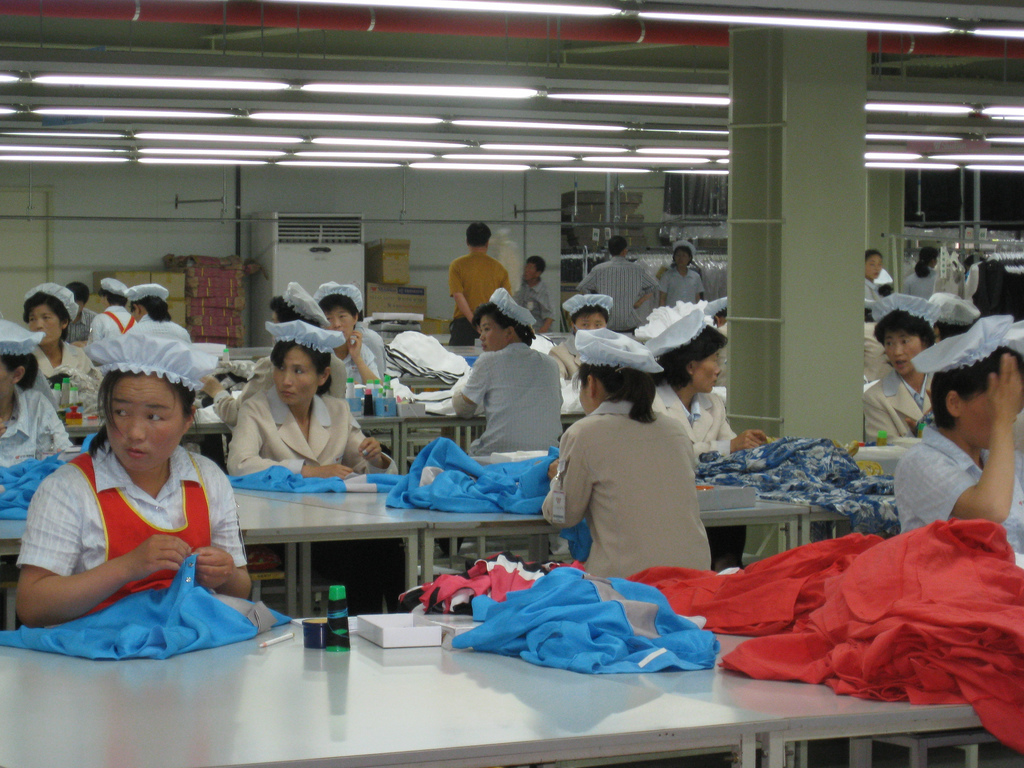The Peninsula
Another Setback for Internationalizing the Kaesong Industrial Complex?

By Troy Stangarone
One of the keys to attracting international investors to the Kaesong Industrial Complex is reducing the political risk of making an investment in the complex and providing a stable business environment. Since the reopening of Kaesong last year, only the German manufacturer, Groz-Beckert, has decided to take that risk. However, a new action by North Korea may further set back the prospects of attracting additional firms to the complex.
While the South Korean government has not yet been notified, Uriminzokkiri, the official website of the North’s Committee for the Peaceful Reunification of the Fatherland, is reporting that the North Korean government has amended the Act on the Kaesong Complex to remove the wage caps in the Kaesong Industrial Complex. Instead of having the wages capped at a 5 percent maximize increase per year; North Korea has indicated that wages will now be set by the complex’s supervisory committee.
This is not the first time that North Korea has sought to raise wages beyond their contractually agreed limits. In 2007, North Korea sought wage increases for workers with university degrees by 30 percent and those with two-year degrees by 10 percent. In 2009, North Korea threatened to unilaterally raise wages to $300 per month. In each of these instances, North Korea backed down and wages remained within the contractual limits.
Much as with last year’s unilateral shutdown when North Korea withdrew its workers from the Kaesong Industrial Complex, the decision to move to a new payment system without reaching an agreement with South Korea on the changes will likely undermine business confidence. If firms continue to see North Korea as arbitrarily instituting new rules and willing to engage in unilateral actions that would interfere with normal business operations, many firms will see the political risk as too great to invest in Kaesong.
In announcing the change, North Korea indicated that it made the decision “to enhance labor quality and productivity.” However, rather than seeking to enforce a new wage structure on the South Korean firms in the complex, North Korea should address some of the issues that inhibit foreign investment. On the wage side, these include the lack of direct payment to workers and the ability of firms to set wages on their own. These steps would help to move the complex closer to international standards. Additionally, taking steps to free the labor market, allow firms to set wages, and paying workers directly would do more to encourage labor productivity and enhance the quality of labor in the complex than having the supervisory committee set wages.
Perhaps as with prior attempts by North Korea to increase wages beyond the current contractually agreement, and other attempts at unilateral changes such as to the tax code, North Korea will back down and reach an accommodation within contractual guidelines or a new agreement on wages that South Korea can accept. However, even if it does, continued attempts by North Korea to rewrite the rules without regard to established agreements will only undermine efforts to develop a stable business environment that will attract foreign investment.
Troy Stangarone is the Senior Director for Congressional Affairs and Trade at the Korea Economic Institute of America. The views expressed here are the authors alone.
Photo by the author.
